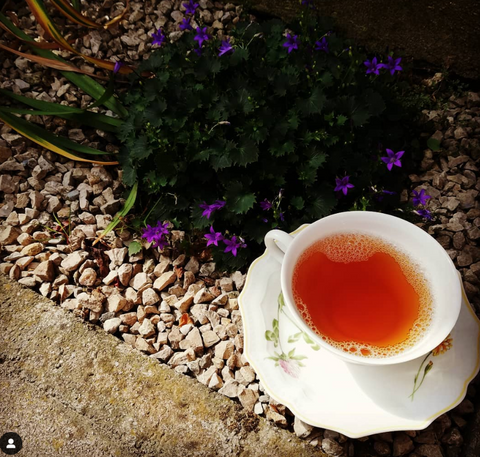What is oolong tea good for?
Coming from the Chinese Fujian region, oolong tea is a tea variety in itself - neither black, nor green, known in France as the "blue tea." It has been cherished for centuries for its singular, smoky taste and health benefits.
Like any tea, oolong consists of leaves of camellia sinensis, the tea plant, which are dried, oxidized, rolled and heated following three century-old techniques.
Benefits of drinking oolong tea
There are two main types of oolong: teas that undergo 10 to 45 percent oxidation (similar to green tea) and the ones that undergo 45 to 70 percent oxidation. The latter ones are darker and sweeter in taste. The green oolongs are mainly produced in Taiwan while the heavily oxidized ones are mainly grown in the Fujian region on China.
What are the oolong tea health benefits?
For centuries, numerous health benefits have been attributed to tea. Recent research seems to confirm these findings.
Tea contains many elements that can have a beneficial impact on our health: polyphenols, flavonoids, fluor. It contains caffeine but in much smaller quantities than coffee and therefore, is not associated with the same health risks as coffee.
Oolong tea and polyphenols
Although the polyphenols remain a mysterious ingredient and require more testing, recent research shows that thanks to them, regular tea drinkers incur a lower risk of nonmelanoma skin cancer: “Compared with nondrinkers of tea, daily drinkers of tea had a reduced risk of NMSC”. Another study proposes that the oolong and black tea polyphenols have various health benefits including anticancer, antioxidant, anti-cardiovascular, anti-microbial, anti-hyperglycemic, and anti-obesity activitie.
Oolong tea and antioxidants
Of the antioxidants contained in tea, the flavonoids seem to have the highest impact on the heart disease prevention. A study confirms that tea consumption is inversely associated with cardiovascular disease development by reducing cardiovascular risk factors, such as hyperlipidemia, hypertension, and hyperglycemia. Another study claims that the fact that tea consumption increases radial blood pulse spectrum and cognitive health may be one of possible mechanisms in lowering the risk of cognitive impairment and stroke.
Oolong tea and fluor
The fluor contained in tea indicates that it could play an important role in oral health. Green and oolong tea protects against bacterial induced dental caries. It defends healthy cells from malignant transformation and locally has the ability to induce apoptosis in oral cancer cells.
Oolong tea and obesity
However, the most widely known health impact of drinking tea is probably its impact on obesity. Most of the studies conducted on animals show that “administration of [tea] significantly reduced the gaining of body weight and/or adipose tissue weight, lowered blood glucose or insulin levels, and increased insulin sensitivity.” Studies conducted on humans, both women and men, confirm these effects. Most studies have also shown that tea consumption leads to reducing the risk of diabetes.
Why oolong?
Most important of all - oolong tea is delicious and incredibly varied. Entering the world of oolong teas is an invitation on a journey which leaves no one unchanged. Some of the most famous oolong teas are the Iron Goddess of Mercy from the Fujian region in China and Pouchong from Taiwan. And if you are not certain whether the oolong taste is the right fit for you, you can always try an Earl Grey Oolong, with a familiar Earl Grey taste.



Leave a comment